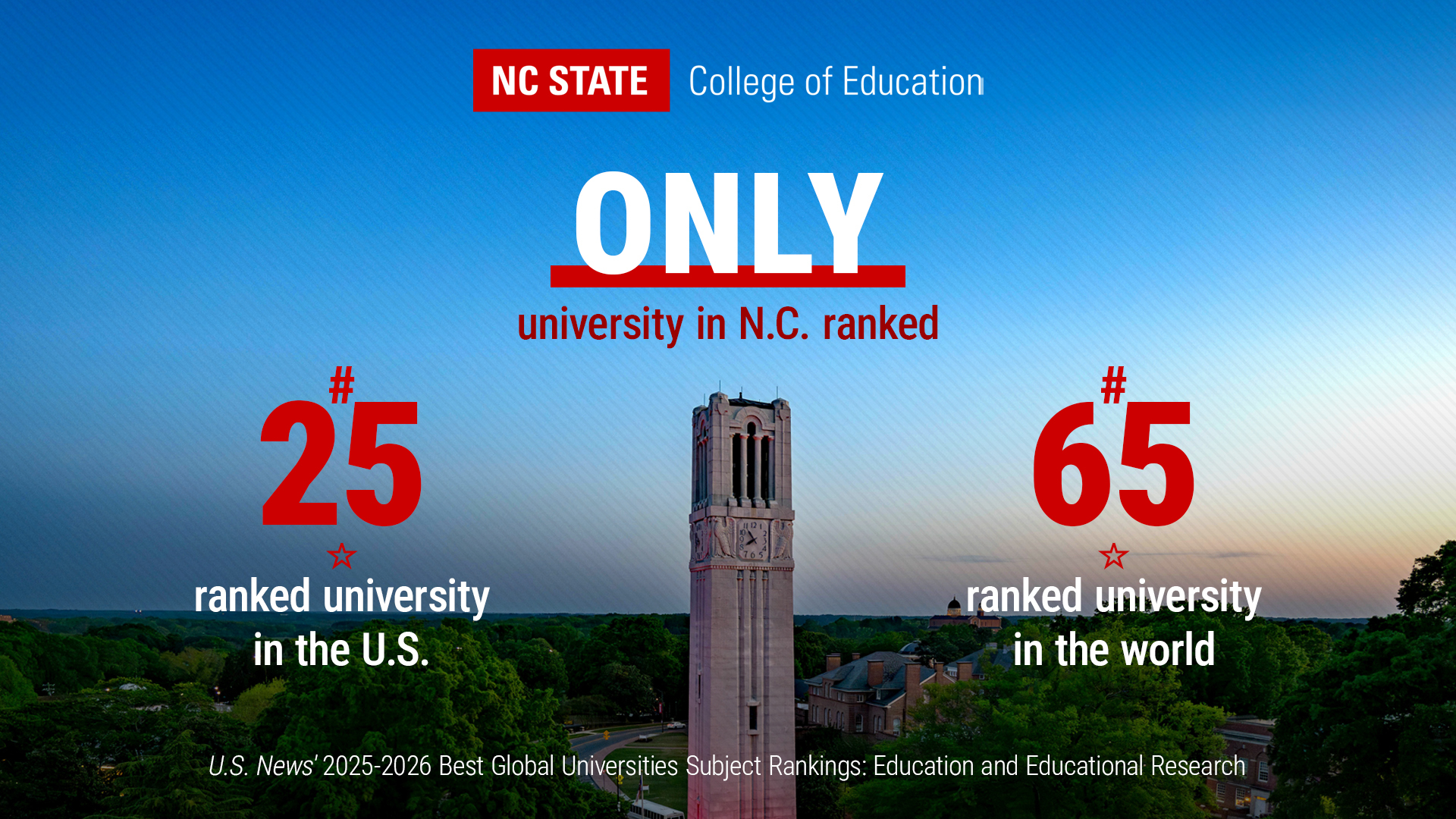Doctoral Student Gordon Maples Explores Intersection of Higher Education, Pop Culture Through Star Trek

Pop culture is often used as an avenue to explore scientific concepts, but Gordon Maples noticed it was less common to see writing that focused on the intersection of pop culture and higher education.
A film lover earning his Ph.D. in the Educational Leadership, Policy, and Human Development Higher Education Opportunity, Equity, and Justice program area of study, Maples decided to write an ongoing series of blogs that focused on how higher education was depicted on screen, which recently led to an article of his being published on Star Trek‘s website.
While Maples said it is common to see horror and comedy films set at universities, he said it was unusual for science fiction.
“Star Trek is one of the rare exceptions to that where you do get a pretty solid look at Starfleet Academy,” Maples said. “And there’s a lot of interesting things there.”
In the article, Maples focused on two characters, Wesley Crusher and Nog, and how their distinct experiences reflect the challenges in higher education today. Maples wrote about the contrasts between Wesley Crusher, a continuing generation student with family connections, and Nog, a first generation student and outsider to the world of higher education.
“Star Trek has gotten all kinds of accolades for being sort of a futuristic vision of looking forward to what our problems are going to be after our current problems,” Maples said. “Whereas what we get with higher education in Star Trek is more echoes of what is happening now, just put in space.”
Maples said his article received a positive reaction, especially after he shared it in a popular Star Trek Facebook group.
“I got tons of feedback from people that were really thrilled about it and thought it was cool,” Maples said. “I actually ran into a bunch of people in higher ed positions, directors of institutional research at various institutions, who were like, ‘Oh wow. It’s higher education and Star Trek — how wonderful.'”
The article wasn’t Maple’s first foray into introducing higher education concepts to a passionate fanbase.
Maples has presented twice at Con of Thrones — a Game of Thrones convention — on the Order of the Maesters, the fantasy series’ equivalent to a higher education institution. In his presentations, he spoke on topics like governance structures and research ethics.
“Institutional review boards obviously don’t exist when there are literal dragons around,” Maples said. “But there was quite a bit there.”
Maples research interests are wide-ranging. He has written on everything from crisis communications to airport advertisements. While his deep dives into Star Trek and Game of Thrones do not tie directly to his research interests at NC State — Maple’s dissertation focuses on religious accommodation policies in higher education — he’s appreciates the way the NC State College of Education has provided him with a supportive environment to chase the ideas he finds interesting.
“I’ve had a lot of freedom to really chase my rabbits in whatever direction I want to go with my research interests,” Maples said. “I think it would have been very easy to wind up at an institution that didn’t have that flexibility.”
Maples sees his writing and presenting on pop culture and higher education as a way to prepare himself to share the research he’s working on through his degree program.
“Once you’ve done your research, you do need to let people know what you’ve found,” Maples said. “I think it’s important to be able to communicate in that way.”
Maples hopes to complete his doctoral degree in 2023. Until then, he plans to take advantage of the space the College of Education has provided him to explore the field of higher education.
“I’ve been very lucky with the situation here at NC State, with my advisor, my committee and all the professors I’ve had,” Maples said. “All the stars have aligned, I suppose.”
- Categories:


